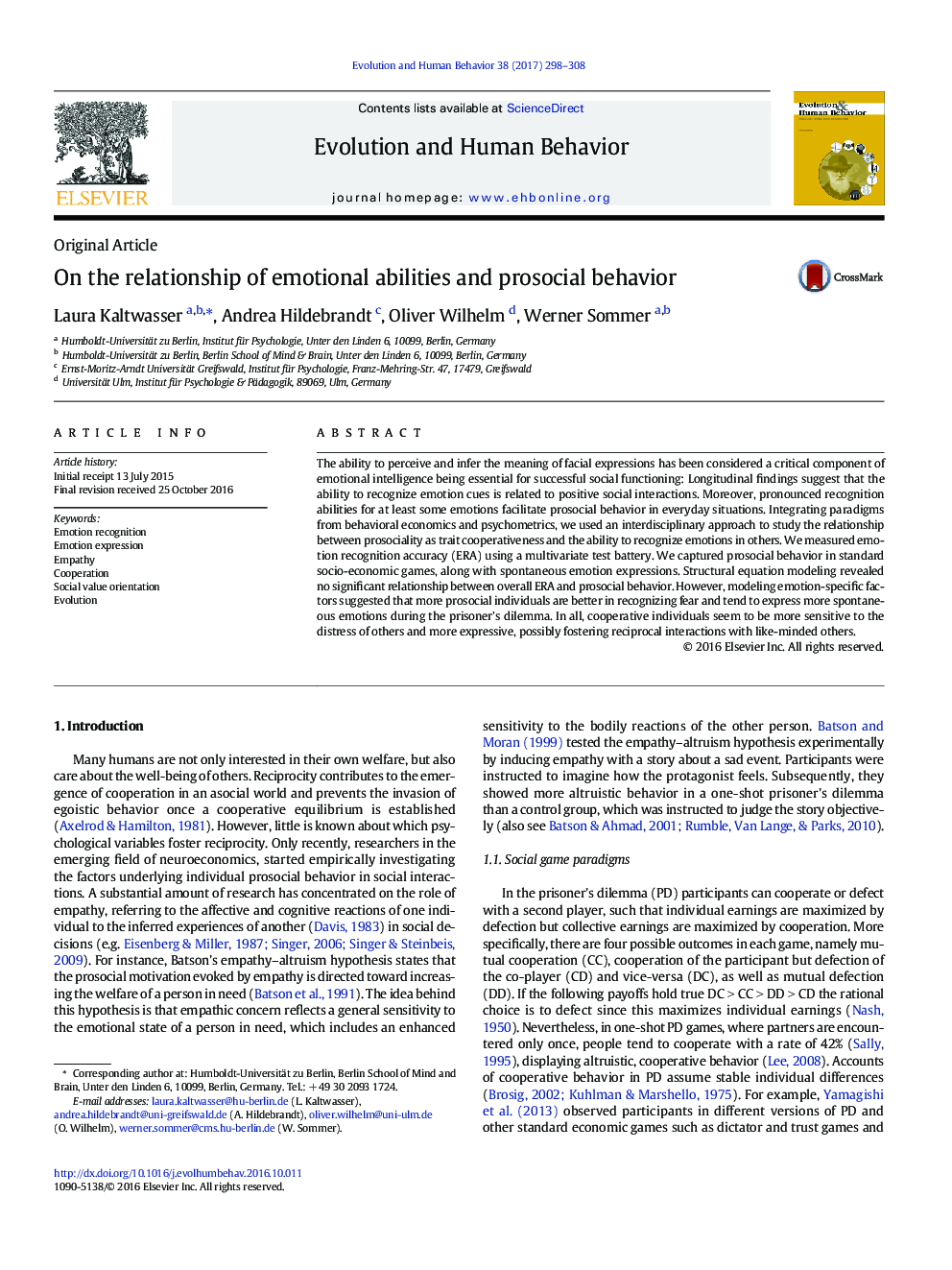| Article ID | Journal | Published Year | Pages | File Type |
|---|---|---|---|---|
| 5044771 | Evolution and Human Behavior | 2017 | 11 Pages |
The ability to perceive and infer the meaning of facial expressions has been considered a critical component of emotional intelligence being essential for successful social functioning: Longitudinal findings suggest that the ability to recognize emotion cues is related to positive social interactions. Moreover, pronounced recognition abilities for at least some emotions facilitate prosocial behavior in everyday situations. Integrating paradigms from behavioral economics and psychometrics, we used an interdisciplinary approach to study the relationship between prosociality as trait cooperativeness and the ability to recognize emotions in others. We measured emotion recognition accuracy (ERA) using a multivariate test battery. We captured prosocial behavior in standard socio-economic games, along with spontaneous emotion expressions. Structural equation modeling revealed no significant relationship between overall ERA and prosocial behavior. However, modeling emotion-specific factors suggested that more prosocial individuals are better in recognizing fear and tend to express more spontaneous emotions during the prisoner's dilemma. In all, cooperative individuals seem to be more sensitive to the distress of others and more expressive, possibly fostering reciprocal interactions with like-minded others.
